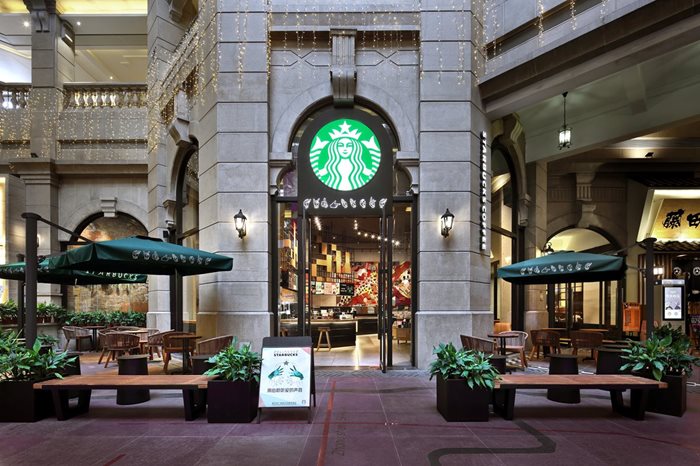Strongest half-year results in three years present positive global outlook for the world’s largest coffee chain, but challenges remain in European markets, particularly the UK

A Starbucks store in China, one of the chain's key global growth markets
A focus on customer experience, beverage innovation and the expansion of digital services, such as app-based ordering and digital rewards schemes, has contributed to Starbucks biggest quarterly sales rise in three years, the firm has announced. The results come as the Seattle-based coffee chain presses ahead with significant strategic partnerships, including the launch of its first branded consumer products with
Nestlé and the continued roll out its
delivery service with Uber Eats in the US.
The world’s largest coffee chain reported a 6% increase in global like-for-like sales for the 13 weeks to 30 June 2019 and attributed the rise to a 3% increase in average ticket sales and a 3% increase in comparable transactions. Subscribers to the Starbucks Rewards loyalty app also grew during the period, increasing 14% on the year to 17.2 million users.
Starbucks President and CEO, Kevin Johnson hailed the positive results as evidence the chain’s ‘growth at scale’ strategy was working.
“Starbucks continues to be focused and disciplined in the execution of our three key strategic priorities that we established last year: accelerating growth in the US and China, expanding the global reach of the Starbucks brand through our Global Coffee Alliance with Nestlé, and increasing shareholder returns.”
Starbucks’ two long-term growth markets, the US and China, saw strong performance. Like-for-likes in the US, Starbucks’ largest market, increased 7% with transactions up 3%. Comparable store sales in China, where Starbucks has seen intense competition from rapidly expanding domestic chain,
Luckin Coffee, increased 6%.
In the EMEA region, Starbucks’ like-for-like sales rose 3% while net revenues declined 11%, results the coffee chain partially attributed to the conversion of its retail businesses in France and the Netherlands to fully licensed operations.
Starbucks’ UK operation has also experienced turbulence. In June 2019 it emerged the chain's flagship European business lost £17.2m in the year ended September 2018. Despite UK sales increasing 4% during the period, Starbucks attributed the loss to challenging high street conditions, store closures and rising costs associated with wages and an improved food menu. In the UK, Starbucks faces strong high street competition from market leader, Costa Coffee, which was
acquired by US beverage giant, Coca-Cola in late 2018.
The results also revealed Starbucks’ consolidated net revenues grew to S$6.8 billion for the quarter, an 8% growth on the previous year. The company opened 442 net new stores in the quarter to operate a total
30,626 stores at the end of the period, a 7% increase over the prior year. Nearly one-third of net store openings were in China and 48% were in other international markets.